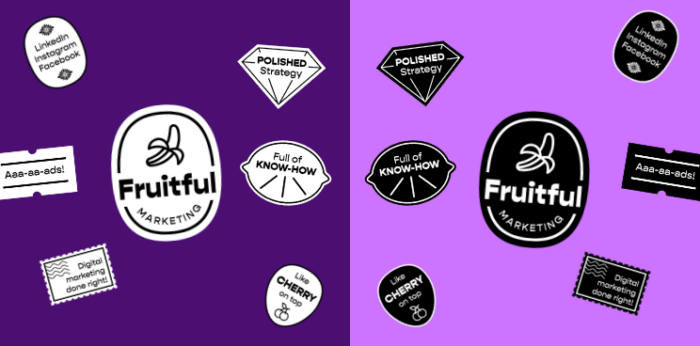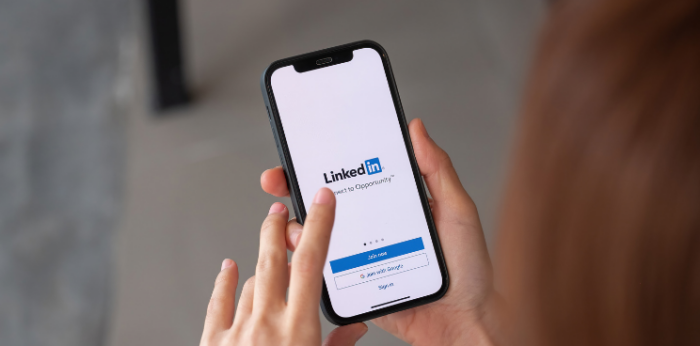Personal brand: why and how you should create it?

For entrepreneurs, the personal brand has never been more important than it is today.
If you are known as an expert in your field, then this trust will be transferred to your company.
The image of an expert gives your business an advantage – it distinguishes you from the “grey mass”.
Although competitors may offer the same products or services, the people behind these companies are different.
In the coming years, we will see successful entrepreneurs as those who are able to communicate their activities to the general public – using the opportunities offered by the Internet and social media.

Why every entrepreneur should think about having their own personal brand?
As a business leader, you are the voice and face of your company.
Are you known for being innovative? Do you take your challenges seriously and always find a solution to reach your goal? Are you someone whose opinion is worth something in your field of work?
If so, then these same characteristics will most likely characterize your business as well.
People do business with the people they trust. Regardless of whether the company was established last month ago or in the last century – trust in you as a person can become decisive when starting long-lasting cooperation between companies.
What are the advantages of having a personal brand?
01Trust & Authority
Having a personal brand will help build trust among your followers and position you as an authority in your field of work.
02You will get published in media
Having a personal brand makes it easier for you to access media outlets (online news, magazines, television, radio, podcasts, etc.).
The media is constantly looking for different specialists to answer their specific questions and give insights into the topics that are currently popular in society.
03Grow your network quickly and efficiently
Having a personal brand that clearly shows who you are, what you do, and how you help others makes it easier to create new contacts with people who already know you virtually. People want to be involved with you. The personal brand gives you the opportunity to grow your contact network – quickly and efficiently.
04Attracting new clients
A well-positioned personal brand that presents you as an expert in a particular sector or niche will help you attract new ideal customers. If people see you as an expert, you will be more likely to be recommended to people you would not otherwise reach.
05Premium Pricing
A strong personal brand helps you justify asking for a premium price for your services or products.
Without a brand, you would be a consumer product that trades only on price. The market is relentless. There is always a competitor in the market who can beat you at a price.
06Your name will stay with you whatever happens
Over time, your business will grow. You can even pursue your career in a number of different areas over the next few years. But your reputation as an authority will always remain with you.
Now let’s take a closer look at how you can get started with your personal brand.
How to create a solid ground for your personal brand?
Before you can share your beliefs and thoughts with others, you need to know yourself.
Your personal brand should reflect your skills, values and beliefs.
The keyword here is authenticity.
Personal Brand = You.
Your own name is at stake, so you need to be careful of what and how you say.
Map your current interests and values
You don’t have to invent a bicycle to create a personal brand. All you have to do is quickly map out your current interests and values.
I recommend analyzing the following:
- Your skills.
What skills have you acquired? What events or courses have you participated in? What certificates or awards have you received? What value do you create for other people through your skills? - Your hobbies and interests.
In what areas do you feel like a fish in the water? What topics are you most passionate about? What do you like to read or do in your free time? - Core values and beliefs.
What are the most important core values that you believe in? What are you standing for in this world? What are you up against?
Key elements for creating the foundation of your personal brand:
Your personal brand vision.
What result do you want to achieve with your activities? When do you want to achieve this result? What problem are you solving?
The mission of your personal brand.
Who do you want to positively influence with your personal brand? How are you going to do that? What are the tasks that will help you fulfil your vision?
Your personal brand message.
What is the key message you want to convey to your audience? If you have the opportunity to pass on one recommendation to your audience in one sentence, what would it be?
Your personal brand personality.
What are your personal characteristics? Do you want to stand out as reserved and professional or rather straightforward and adventurous?
Make clear who’s the perfect audience you want to address
One of the biggest mistakes you can make when creating your personal brand is that you try to please everyone.
In reality, not all people are your followers, prospective customers, or business partners.
In order to attract followers to whom you can offer maximum value, you have to figure out for yourself to who you want your messaging being addressed.
Keep in mind
When you try to please everyone, you will not get closer to your desired goal.
You have to be different in order to stand out. Even if you try to be liked by everyone, there is always someone who doesn’t like your thought, video or copy.
And that’s alright. You don’t need to reach everyone to build a successful personal brand that will help you grow your business.
You just have to get to the right person with whom you would like to do business.
Pareto principle
You most probably already know that 20% of your customers bring in 80% of sales.
Here are some questions to help you create the perfect follower profile:
- Demographics – what is his or her age, gender, education, relationship status, income, job position?
- Motivators – what kind of future does he or she want to create for him- or herself? What are his or her dreams, goals and preferences?
- Pain points and problems – where does he or she want to be in the next 5 years? What obstacles does he or she currently have to overcome to make his or her wishes come true? What has hindered progress in this direction so far?
A prerequisite for a strong personal brand is an understanding of how well you understand your audience and their problems.
This way you can make it clear for yourself how you should communicate with your perfect audience.
The content strategy of your personal brand
Creating and distributing free value to your audience is the most effective way to build your brand and gain the trust of your ideal audience.
Instead of convincing your audience that you can help them, create content that actually helps them and what they could use immediately.
This will help build trust and position you as an expert or an authority in your industry.
It’s no coincidence that the most successful personal brands in marketing today like Chris Walker, Gary Vaynerchuk and Peep Laja post insane amounts of content on the web to grow their businesses.
Creating the content strategy for your personal brand
When creating a content strategy for your personal brand, start with the following – create a list of different topics that might be of interest to your target audience. Google Keyword Planner, UberSuggest, BuzzSumo, and Answer The Public are great tools for background research on keywords and popular topics.
If you have a list of topics from which you want to create content posts, the next step is to decide what type of content you want to create and where you will publish it.
Best performing content types
- Text Posts and Articles
- Videos
- Podcasts
- Webinars
- Online courses
- PDF instructions, whitepapers, worksheets
- Infographs
- Slideshows
- Case Studies
Popular mediums where to publish your content:
- Your blog or a website
- Podcast sharing platforms like Apple Music, Soundcloud, Spotify
- YouTube
- Others blogs and online publications
- Social Media, especially Linkedin for B2B professionals
- Slideshare
- Quora
Focus on quality and consistency
For content marketing to work, it’s important to focus on quality and consistency. Don’t post content that could misrepresent your personal brand.
Be sure to post consistently. Content marketing involves a long-term strategy. This long-term strategy has a very high ROI if implemented correctly.
Creating and sharing content is more time and money consuming than people could imagine. Therefore, it is recommended to stick to 1-2 main content types, such as blog posts and videos.
When it comes to sharing content, it’s also a good idea to stick with 1-2 channels – like YouTube and LinkedIn. When you start to get more success with the main channels, start experimenting. If you do not, you will most likely be dependent on these 1-2 main channels in the future.
Pro tip
Don’t forget how people consume content. Most of us consume content on mobile phones. With that in mind, create content that is convenient to consume on mobile!

Get your content in front of other influencers in your field of work
Posting content is a great way to grow your audience, but it takes a long time. A faster way to grow your audience is to get attention from other people’s audiences.
Here are some basic ways to increase your visibility through others following:
Interviews and PR
Offer to appear in the most popular podcasts or shows in your field. In the same way, you can try to find opportunities to appear in traditional media.
Writing guest posts
Write articles for other blogs or online publications that your audience reads.
Public appearances
Offer to speak at various events, local meetings and conferences that your target audience attends.
Cooperation with other experts in their field
Establishing good relationships with other people who are experts in your field can lead to unexpected offers. Some interviewees may recommend you to an acquaintance who needs help in your niche.
Create a community
Instead of trying to build the largest and broadest possible audience, try to become an expert in a certain niche.
Define your target group and build your personal community based on it, where they can discuss, exchange ideas, support each other and contact you directly.
Here are a few ways how you could start using the power of community:
Facebook groups
Create a private Facebook group where you invite your audience and customers. This gives you the opportunity to create meaningful conversations with your audience on a daily basis.
Organize events
Be the host of the party! Organize events yourself where you invite your audience or customers you want to spend time with.
Ordinary meetings, private dinners, workshops and mastermind groups are all good ways to build long-term relationships with your audience.
Create a podcast and invite guest speakers
During the corona epidemic, people became accustomed to video calls, where experts in the field shared their thoughts and listeners were able to ask a question through Zoom.
Through such so-called workshops, it is possible to create a highly concentrated community, where everything is closely interconnected and where value is created through the cooperation of the whole community.
Now is the time to get started with your personal brand!
As an entrepreneur, you have competitors, but if you have a personal brand, you have no competitors. Sure, there are other people and companies that sell similar products and services like you, but they are NOT YOU.
In fact, there is no other person here on earth like YOU. As an individual, you are 100% unique.
Find that courage and start your journey on building personal brand!

















